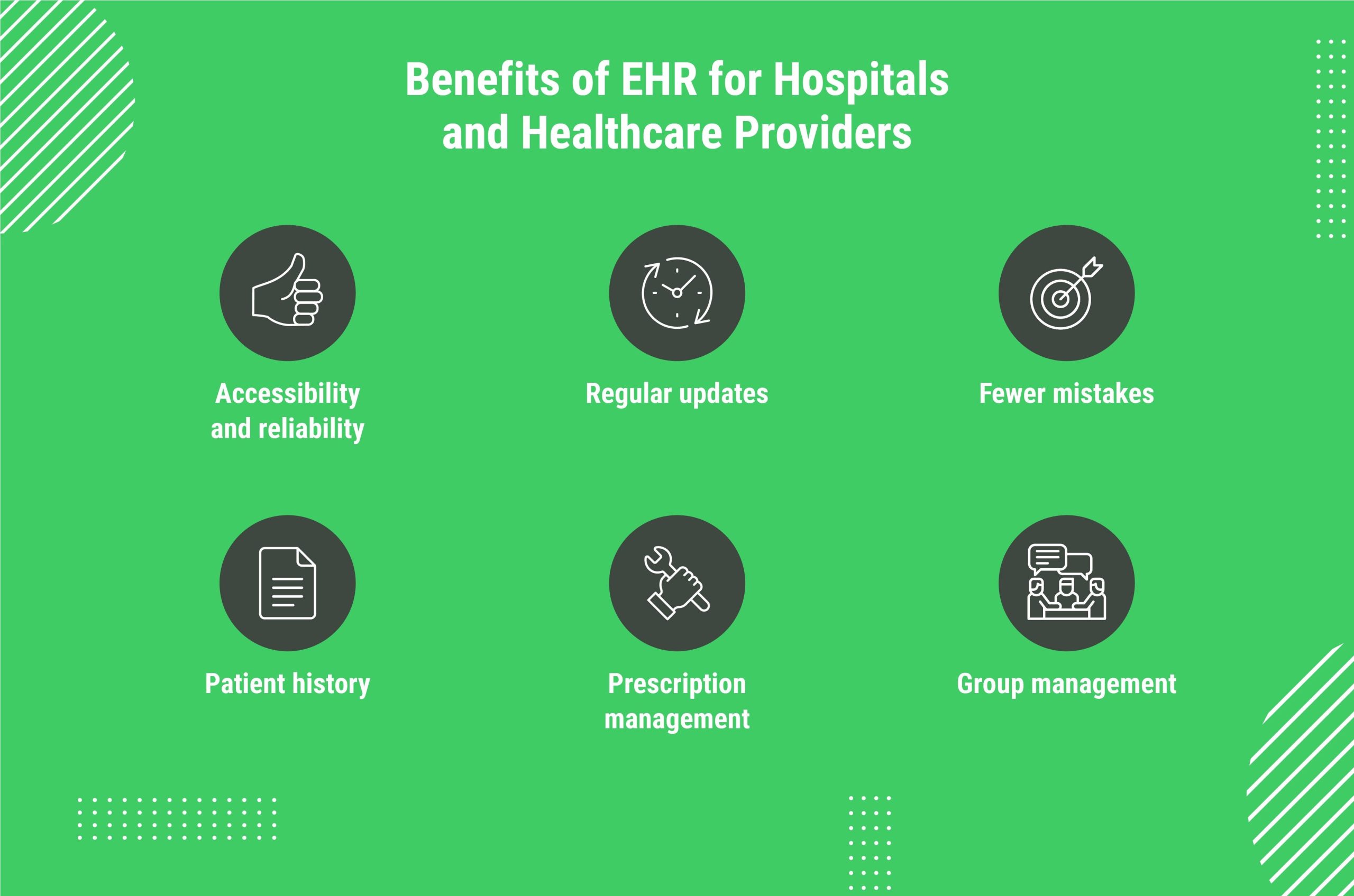Benefits of Electronic Health Records (EHRs)
In today’s digital age, the healthcare industry has witnessed a significant transformation with the introduction of Electronic Health Records (EHRs). These digital systems have revolutionized the way patient information is stored, accessed, and shared among healthcare providers. In this article, we will explore the numerous benefits of EHRs and how they have become an essential tool in modern healthcare.
Improved Efficiency and Accessibility
EHRs have streamlined the process of managing patient records, eliminating the need for paper-based files and manual data entry. With EHRs, healthcare professionals can easily access patient information, including medical history, lab results, and prescriptions, with just a few clicks. This enhanced accessibility allows for quicker decision-making, reducing the time spent searching for physical files and enabling healthcare providers to focus more on patient care.
Enhanced Patient Safety
EHRs play a crucial role in improving patient safety by reducing medical errors and improving communication among healthcare providers. With EHRs, medication errors due to illegible handwriting or misinterpretation of orders are minimized. Additionally, EHRs provide real-time alerts and reminders for medication interactions or allergies, ensuring that healthcare professionals have the most up-to-date and accurate information at their fingertips. This ultimately leads to better patient outcomes and enhanced overall safety.
Seamless Information Sharing
One of the significant advantages of EHRs is their ability to facilitate seamless information sharing among healthcare providers. Gone are the days of faxing or mailing patient records between different healthcare facilities. With EHRs, authorized healthcare professionals can securely access and share patient information, allowing for better coordination of care. This interoperability not only improves the overall quality of care but also reduces duplication of tests and procedures, saving time and resources.
Improved Documentation and Data Accuracy
EHRs eliminate the need for manual documentation, reducing the chances of errors and ensuring accurate and complete patient records. Through standardized templates and data entry fields, healthcare providers can capture relevant information consistently. This improves the accuracy of diagnoses, treatment plans, and medical coding, leading to more efficient billing processes and reduced claim denials. Moreover, EHRs provide a comprehensive audit trail, allowing for easy tracking of changes made to patient records, and enhancing transparency and accountability.
Cost Savings and Efficiency
While the initial investment in implementing EHR systems can be significant, the long-term benefits outweigh the costs. EHRs help healthcare organizations reduce administrative expenses associated with paper-based records, such as printing, storage, and retrieval. Additionally, EHRs facilitate streamlined workflows and automate various tasks, reducing the need for manual labor and improving overall efficiency. This optimization of resources leads to cost savings and allows healthcare providers to allocate their time and resources more effectively.
Improved Research and Population Health Management
EHRs have revolutionized research capabilities and population health management. With the vast amount of data collected in EHR systems, researchers can analyze anonymized patient data to identify trends, conduct studies, and improve medical knowledge. EHRs also enable healthcare providers to proactively manage the health of populations by identifying at-risk patients, monitoring chronic conditions, and implementing preventive care measures. This proactive approach to healthcare helps reduce hospital readmissions, emergency room visits, and overall healthcare costs.

Electronic Health Records (EHRs) have transformed the healthcare industry by improving efficiency, enhancing patient safety, facilitating information sharing, and reducing costs. The benefits of EHRs extend beyond individual patient care to research and population health management. As technology continues to advance, the use of EHRs will become even more integral to the delivery of high-quality healthcare. Embracing EHR systems is crucial for healthcare organizations to stay competitive, provide better patient outcomes, and contribute to the advancement of medical knowledge.
Frequently Asked Questions about the Benefits of EHRs
1. What are the benefits of using Electronic Health Records (EHRs)?
EHRs provide improved accessibility to patient information, enhanced coordination of care, increased patient safety, and streamlined healthcare workflows.
2. How do EHRs enhance accessibility to patient information?
EHRs allow healthcare providers to access patient records instantly, regardless of their physical location, leading to more informed decision-making and better patient outcomes.
3. What role do EHRs play in coordinating care?
EHRs enable seamless sharing of patient data among different healthcare providers, ensuring a comprehensive and coordinated approach to patient care.
4. How do EHRs contribute to patient safety?
EHRs reduce the risk of medical errors by providing accurate and up-to-date patient information, including medication lists, allergies, and previous diagnoses, which helps healthcare providers make safer treatment decisions.
5. Can EHRs improve healthcare workflows?
Yes, EHRs automate various administrative tasks, such as appointment scheduling and billing, freeing up healthcare professionals’ time to focus more on patient care.
6. Do EHRs help in reducing healthcare costs?
By improving efficiency, reducing duplication of tests, and minimizing errors, EHRs can contribute to cost savings in the long run.
7. How do EHRs support clinical decision-making?
EHRs provide access to evidence-based guidelines, clinical decision support systems, and patient-specific data, empowering healthcare providers to make more informed and accurate treatment decisions.
8. Can EHRs improve patient engagement?
Yes, EHRs offer patient portals that allow individuals to access their health information, communicate with healthcare providers, schedule appointments, and actively participate in their own care.
9. What are the security measures in place to protect EHRs?
EHRs employ various security measures, such as encryption, access controls, and regular data backups, to ensure the confidentiality and integrity of patient information.
10. How do EHRs contribute to medical research and population health management?
EHRs provide a wealth of data that can be anonymized and used for medical research, population health analysis, and public health planning, leading to advancements in healthcare and improved population outcomes.




